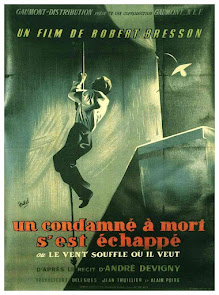Dao ma zei; art-film / drama, China, 1986; D: Tian Zhuangzhuang, S: Rigzin Tseshang, Jiji Dan, Daiba, Drashi, Gaoba, Jamco Jayang
Tibet. Buddhist monks pay respects to their dead. Norbu, a nomad, has to resort to stealing horses to feed his family, wife Dolma and son Tashi. When Norbu steals temple gifts from the headman, his clan expels him and his entire family and orders them to live in exile. In a tent, Tashi catches a cold during winter and dies. Years pass by, and Dolma gives birth to another child. Norbu struggles to survive and feed his family. He sells his horse for money. When he is accused of stealing the horse one night, he orders Dolma to ride away with their child in an unknown direction. Norbu rides away. Later, he is killed by the people who accused him of stealing.
At the TV show "At the Movies with Roger Ebert", guest M. Scorsese named Tian Zhuangzhuang's "The Horse Thief" as his no. 1 movie of the decade, which retroactively gave it the status of a secret recommendation. While such superlative acclaim is a little bit exaggerated, "The Horse Thief" is still a valuable and aspirational blend of ethnographic documentary of the never before seen cultural life of Tibet and a narrative of a man resorting to stealing to feed his family. Raw, astringent and minimalistic director's approach give this film a high dose of realism, with sometimes creepy and disturbing rituals recorded on the screen (Buddhist monks leave a deceased man out on the meadow, where it is given to vultures in a sort of 'cycle of life'; men throw a dozen semi-dead sheep into a crater and bury them alive (?), in a tradition that is given no context nor explanation). Equipped with several panorama shots of Tibet's meadows and mountains, the movie ponders on some bitter themes in the world (desolate existence; loneliness; man at the mercy of destiny; the cycle of suffering until death; fatalism), but not every sequence is equally as interesting, making several moments seem boring and overstretched. The ending feels abrupt and with an unnecessary scene of animal cruelty (Norbu slaying a sheep with a knife). "The Horse Thief" isn't for everyone's taste, but, similarly like "Nanook of the North", it is a quality slow movie that gives a rare insight into an isolated culture that seems like it came from another world.
Grade:+++








